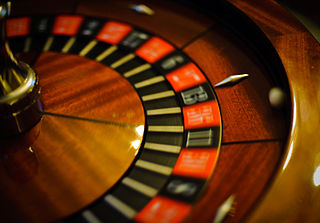tl;dr summary – people will unconsciously anchor their judgment on a random number given to them, even if that number was fabricated in front of their own eyes.
If you’ve never heard the term “price anchor“, you’ve undoubtedly experienced it anytime you’ve had to negotiate a purchase, whether it was for a used car, an online auction, or even cheap souvenirs at a Chinatown bazaar.
Even if you manage to haggle the seller down to half the initial stated price, don’t be too quick to congratulate yourself; the merchant might have gotten what he/she wanted despite the discount, if the asking price was over the top.
And the kicker is: even if you knew the initial asking price was too high, you still might have been fooled into overpaying.
Daniel Kahneman, a psychologist who won the Nobel Prize for Economics, conducted a famous experiment in which college students were influenced by a random number that they knew to be random:
Amos and I once rigged a wheel of fortune. It was marked from 0 to 100, but we had it built so that it would stop only at 10 or 65. We recruited students of the University of Oregon as participants in our experiment. One of us would stand in front of a small group, spin the wheel, and ask them to write down the number on which the wheel stopped, which of course was either 10 or 65.
We then asked them two questions:
- Is the percentage of African nations among UN members larger or smaller than the number you just wrote?
- What is your best guess of the percentage of African nations in the UN?
The spin of a wheel of fortune – even one that is not rigged – cannot possibly yield useful information about anything, and the participants in our experiment should simply have ignored it. But they did not ignore it. The average estimates of those who saw 10 and 65 were 25% and 45%, respectively.
Kahneman, Daniel (2011-10-25). Thinking, Fast and Slow (p. 120). Macmillan.
In his recently published book (well worth purchasing, BTW), Thinking, Fast and Slow, Kahneman reflects that “we were not the first to observe the effects of anchors, but our experiment was the first demonstration of its absurdity: people’s judgments were influenced by an obviously uninformative number.”
This lesson is something to keep in mind as a content-creator, particularly in a digital age in which it’s very easy to distribute your work for free. The fact that so many developers sell their apps for free (or, “freemium”) creates a price anchor that makes even 99 cents seem too much for a high-quality game (see Tom Oatmeal’s excellent comic on this phenomenon).
Kahneman’s experiment suggests that some people might be fooled into paying higher than they might, but in today’s inter-connected world where price comparisons are instant, it’s harder to get away with irrationally high prices. The more pressing concern is that pricing too low can cause customers to assign an irrationally low value to your product.
Rather than get offended when people demand that your product be free, see it as a quirk in human psychology – people can’t help but be fooled by even random numbers – and adjust accordingly. You may just have to adjust your product or its pitch to emphasize its uniqueness before you have the freedom to set a palatable price anchor.

Pingback: The psychology of mattress pricing
Pingback: Humble Bundle payments: Just because you use open software doesn’t mean you’re cheap | Dan Nguyen's blog